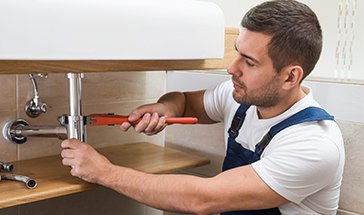Gardening has become more popular these days. It has various benefits for physical and mental health and the environment. Sustainable gardening and eco-friendly landscaping are also becoming more and more popular. This type of gardening aims to minimize the negative impact on the environment and add aesthetic appeal to every home.
Certain gardening practices can improve your home’s carbon footprint, reduce water and power use, and damage to your property, including your home’s plumbing system. Gardening is more than a pastime. It will do wonders to your overall health and the environment.
The Problems with Traditional Gardening Practices and How to Avoid Them
It can be hard to maintain a healthy garden without the proper knowledge. This article will go over some of the most common gardening mistakes and how to avoid traditional gardening techniques that may not be sustainable.
Planting too early or too late
Seeds require the right temperature to grow properly. Planting too early or too late could cause rotting and freezing before it can mature. It is recommended to cover them with some frost protection. Know the last frost date and determine the reasonable time to plant, based on its maturation period.
Using chemical fertilizers
Use organic fertilizers instead of chemical ones. Chemical fertilizers can pollute groundwater, kill beneficial insects, and cause other environmental problems. You should also ensure that your plants are getting enough sunlight and water by placing them in an area where they will get plenty of sun exposure and regularly watering them.
Planting too close to each other
It could be tempting to plant seeds too close to each other, perhaps to save space. However, crowded plants are prone to nutrient deficiencies, poor air circulation, and competition from sunlight and moisture. Pay attention to spacing when planting seeds as listed on seedling tags or seed packets.
Too little or too much watering
Underwatering or overwatering can be detrimental to plants. Too much water can deprive plants of oxygen. Both lack of and excess water could also cause wilting. To check if your plants are getting the right amount of water, stick your finger a few inches into the loamy soil. If it’s moist, there’s no need to water. Better if you water deeply and less often.
Using too little or too much mulch
While mulching effectively improves moisture retention and controls weeds, too much mulch could affect plant growth. It is better if you use organic compost as mulch and add about an inch of it to your garden.
There are many benefits to using sustainable plants in your landscaping:
- They are easier to take care of because they need less watering, fertilizing, and maintenance.
- They are healthier for your skin and allergies because the chemicals used in traditional plants can be harmful to your health.
- It’s good for the environment because it reduces waste from artificial fertilizers and pesticides that harm wildlife.
Be more conscious of your water usage and understand your home’s plumbing system. You can use smart irrigation technology or a water collection system. Call a professional plumber in Mt. Pleasant, TN, for your plumbing needs and improve your gardening experience.



